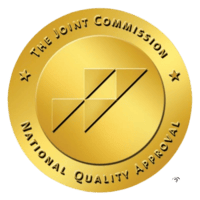In the journey of addiction recovery, understanding and managing triggers emerge as a pivotal factor for sustained sobriety. Triggers, which can be categorized as environmental, emotional, or social, often provoke profound cravings that test an individual’s resilience. Recognizing these stimuli requires a sharp self-awareness and exploring one’s environment. Nevertheless, merely identifying triggers is just the beginning; the real challenge lies in developing effective coping strategies that mitigate the impact of these triggers and encourage personal growth. What methods can be employed to navigate this complex terrain effectively?
Defining Triggers in Recovery
Triggers in recovery can be understood as specific stimuli—whether they be environmental, emotional, or social—that provoke cravings or the desire to engage in substance use. These triggers can arise from various sources, including environmental cues such as particular locations or smells that evoke memories of substance use. Stress factors often exacerbate these triggers, creating a heightened vulnerability to relapse.
Social situations also play a significant role; interactions with specific individuals or groups may unconsciously reinforce old habits, making it essential to navigate relational dynamics carefully. Understanding one’s history is crucial, as it can illuminate how past experiences influence current reactions to stressors. Moreover, sensory stimuli—like music or specific foods—can elicit cravings tied to previous substance use, complicating the recovery process.
Types of Triggers
Although various stimuli can provoke cravings in individuals recovering from addiction, identifying the distinct types of triggers is essential for effective management. Triggers can be categorized into different kinds, each influencing the recovery journey uniquely. Environmental triggers encompass specific locations or settings that evoke memories associated with substance use.
Social triggers arise from interactions with peers or family members that can either support or undermine recovery efforts. Situational triggers refer to particular events or circumstances, such as celebrations or stressful situations, that may lead to cravings. Internal triggers involve emotional states or thoughts that generate cravings, whereas sensory triggers relate to stimuli such as sights, sounds, or smells that remind individuals of their past substance use.
The Impact of Triggers
Triggers play a vital role in addiction recovery, influencing emotional responses that can either hinder or facilitate progress. Understanding the various types of triggers is fundamental for developing effective coping strategies that empower individuals to manage their recovery journey.
Environmental cues, such as specific locations or familiar objects, can evoke memories associated with substance use, making it essential to identify and alter one’s surroundings as part of necessary lifestyle changes. Social pressures likewise play a significant role; interactions with peers who engage in substance use can create an overwhelming temptation to relapse. Developing a robust support system and practicing assertiveness can help mitigate these influences.
Emotional Responses
Emotional responses play a pivotal role in the terrain of addiction recovery, significantly influencing an individual’s journey toward sobriety. Understanding these emotional responses is imperative, as they often dictate reactions to various emotional triggers, ranging from stress and anxiety to joy and excitement. When individuals encounter these triggers, their ability to maintain emotional resilience is tested, impacting their recovery process.
Emotional regulation strategies can help manage these responses, allowing individuals to navigate overwhelming feelings without resorting to substance use. Developing emotional resilience is essential for sustaining long-term recovery. This involves cultivating the ability to bounce back from setbacks and manage adversity effectively.

Final Thoughts
Understanding and managing triggers is crucial for successful addiction recovery. By recognizing the diverse types of triggers and their impacts, individuals can engage in proactive identification and effective coping strategies; establishing a robust support system further improves resilience and encourages sustained recovery. Ultimately, a comprehensive approach to trigger management not only aids in overcoming immediate challenges but also nurtures long-term sobriety and personal growth, laying the foundation for a healthier, more fulfilling life. At BlueCrest Detox, we’re dedicated to elevating you from the struggles of substance use to the peaks of recovery and resilience. Our expert team offers personalized, evidence-based treatment services tailored to support your unique journey toward healing. Reach out to us for the compassionate care you deserve on your path to wellness. Follow us on Facebook for ongoing support, insights, and inspiration on your recovery journey.
Frequently Asked Questions
Can Triggers Change Over Time During Recovery?
Yes, triggers can evolve as individuals experience personal growth. This evolution reflects changes in emotional responses, coping strategies, and life circumstances, necessitating ongoing assessment and adaptation of recovery approaches to nurture sustained well-being.
How Can Family Help Manage Triggers?
Family can help manage triggers by nurturing a supportive environment, maintaining open communication, establishing healthy boundaries, and utilizing educational resources. These strategies empower individuals to navigate challenges effectively, promoting resilience and long-term well-being.
Are Triggers Always Negative in Recovery?
Triggers are not exclusively negative; they can also be positive. Positive triggers can evoke uplifting emotional responses, nurturing resilience and motivation. Emotional triggers may challenge individuals yet offer opportunities for growth and self-awareness in their journey.
What Role Does Therapy Play in Understanding Triggers?
Therapy plays a vital role in understanding triggers. It utilizes cognitive behavioral therapy to identify maladaptive thought patterns and enhance emotional regulation skills, ultimately nurturing healthier responses to triggering situations and promoting overall well-being.
Can Mindfulness Help in Managing Triggers Effectively?
Mindfulness techniques can significantly improve emotional awareness, allowing individuals to identify and respond to triggers more effectively. By nurturing a nonjudgmental awareness of thoughts and feelings, mindfulness promotes resilience and adaptive coping strategies in challenging situations.




